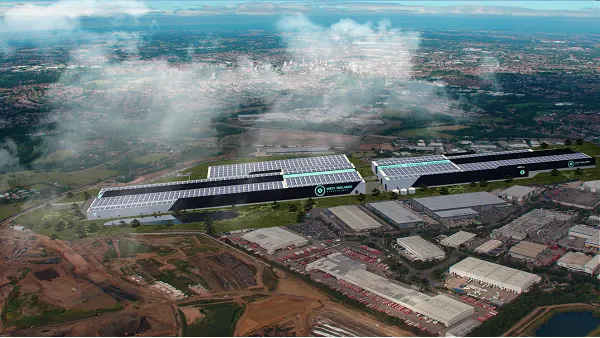West Midlands Investment Zone Gets A Green Light

By West Midlands Combined Authority
2 minutes 22 seconds
Investment
Share:
Quick Read: A comprehensive plan for the West Midlands Investment Zone, aiming to attract over £5.5 billion in private investment and create more than 30,000 jobs, was approved today by the West Midlands Combined Authority (WMCA) Board.
The West Midlands Combined Authority (WMCA) Board has officially approved a detailed plan for the West Midlands Investment Zone, a transformative initiative aimed at attracting more than £5.5 billion in private investment and generating over 30,000 new jobs. The decision was made during a board meeting held in Wolverhampton on Friday, June 14.
The approved delivery plan includes a combination of tax incentives, direct funding, and business rate retention to stimulate growth in advanced manufacturing, green industries, health-tech, and digital technologies. The investment zone will span the entire West Midlands, with a focus on three key sites, each offering bespoke funding and incentives for businesses.
The three designated sites are:
1. Coventry-Warwick Gigapark at Coventry Airport:
- Anchored by a new battery gigafactory and related technologies.
- Benefits include tax incentives, business rates retention, and £23 million for land remediation, infrastructure, and power grid connections.
2. Birmingham Knowledge Quarter:
- Stretching from Birmingham City and Aston universities through Duddeston and Nechells to Aston.
- Offers tax incentives, business rates retention, and £9 million for public realm improvements and active travel infrastructure.
3. Wolverhampton Green Innovation Corridor:
- Focused on creating new green industries and skills through a partnership between the city council and university.
- Receives £7 million for land remediation and key infrastructure development.
Laura Shoaf, WMCA Chief Executive, expressed enthusiasm about the potential impact of the investment zone:
“The Investment Zone is already attracting significant private sector investment and following the deployment of this delivery plan will have the potential to attract billions of pounds more as well as tens of thousands of new jobs. Those jobs are key because this investment zone needs to be as much about people as it is about business.”

Coventry-Warwick Gigapark, Photo Credit: WMCA
The plan includes a comprehensive skills programme to ensure local residents are equipped for the new technology-based and green jobs being created. This initiative, developed with significant input from local councils, universities, and the private sector, aims to drive inclusive economic growth across the region.
The WMCA Board highlighted the potential for retaining approximately £1.5 billion in business rates over the zone’s 25-year lifespan. This revenue will be reinvested into the region, supporting ongoing business development and skills programmes. The first 12 months will see £19 million of the allocated £160 million government funding being utilized for various support programmes, including:
- £5 million for supply chain adaptation to maximize Investment Zone opportunities.
- £5 million in research and development (R&D) grants.
- £5 million for Level 4/5 and other skills training to meet high-tech industry demands.
- £2 million for zone promotion and accelerating investor interest.
- £2 million to support innovative companies alongside angel investors.
Developed with extensive support from the public, private, and university sectors, the plan aims to attract over £2 billion in new investment initially, with an additional £3.5 billion over its lifetime, creating more than 30,000 jobs by 2034.
The delivery plan will now be submitted to the Department for Levelling Up, Housing and Communities (DLUHC) for final approval, enabling the release of the funding.The WMCA Board meeting was also noteworthy for being the first attended by Warwick District Council as a non-constituent member, following its decision to join the WMCA. The council is a key partner in the Coventry-Warwick Gigapark site.
For more details, visit WMCA's official website.

Proudly Backed By Our Patrons

















